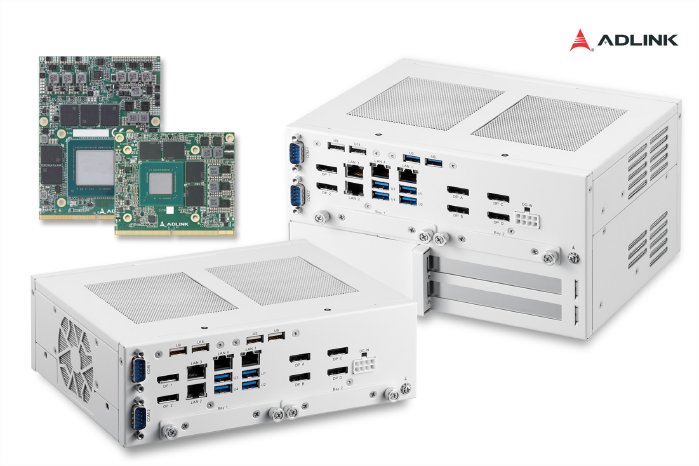In addition to the real-time capability and compact design of the highly efficient systems, medical device manufacturers, system integrators and hospitals are particularly impressed by the full system responsibility that ADLINK Technology offers for the systems that are available for at least 5 years over the long term. Both the processor boards and the graphics cards come from our own development and production, so that customer support for all components comes from a single source.
“Imaging procedures contain an increasingly high level of detail. 2D layer models and 3D visualizations increase the performance requirements, and the integration of artificial intelligence further markedly expands the requirements of the image-processing systems. Simultaneously, it is required to provide imaging in real-time. On the other hand, the system design must be balanced with regard to costs and energy consumption. With our MLB-300x series, we offer medical device manufacturers, system integrators and hospitals a modular system, so that they can optimally design their imaging tasks," explains Matthias Lubkowitz, director of the Healthcare Business Center EMEA at ADLINK Technology in Deggendorf.
In imaging processes in medical technology, the new MLB-300x systems impress above all with their flexible GPU equipment, which is implemented using an MXM slot. Standard configurations with MXM graphics modules are available with NVIDIA Quadro graphics cores of the Pascal™, Turing™ and Ampere™ generations. The MLB-3002 systems also have two additional PCI Express slots for dedicated frame grabbers or other graphics cards.
In MXM modules based on the Ampere™ and Turing™ architecture, ray tracing, which is crucial for 3D volumetric imaging, is based on hardware accelerators, called RT Cores, for the first time. The rendering of image data is thus possible in real time for the first time. The onboard Tensor Cores also accelerate the matrix calculations that are at the heart of deep learning neural network training and inference operations, enabling artifact removal, contrast adjustment, and sharpness enhancement for clearer medical images.
The feature set in detail
The new IEC 60601-1 and IEC 60601-1-2 compliant MLB-300x medical computing platforms are available with 11 different Intel Core processors up to the Intel Core i7-9700E with 8 computing cores. Two configurations with Intel Celeron processors are also available for cost-sensitive applications. All systems support up to 64 GB DDR4 2666 RAM. For imaging processes with GPU-accelerated artificial intelligence, they can be equipped with 9 different MXM graphics modules as required. The current flagship is the MXM module with real-time capable NVIDIA RTX A4500 GPU from the Ampere family. It offers 5120 CUDA, 160 Tensor and 40 RT Tensor cores and achieves a performance of up to 17.8 TFLOPS FP32.
All MLB-300x systems also support up to 6 independent displays for numerous visualization options in diagnostics and in operating theatres. The MLB-3002 systems can be expanded with additional frame grabber or graphics cards via two PCIe x4 slots. Additional peripherals can be connected via up to 6x USB 3.2 Gen x1, 2x USB 2.0, 1x RS-232/422/485, 1x RS-232 and 4x optional digital I/Os. 3x Gigabit Ethernet and optional WLAN ensure numerous edge networking options for the AI systems, also in the direction of clinical PACS, diagnostic clouds and other medical IoT applications. Medical power supplies with up to 220 watts or conventional solutions with up to 500 watts are available to customers for the power supply.
Further information on the new real-time medical computing platforms for AI-supported imaging methods can be found at: https://www.adlinktech.com/en/medical-box-pc
- The image data pre-processing and AI analytics require around 50ms for visualization. A hardware configuration suitable for the imaging task is required.


